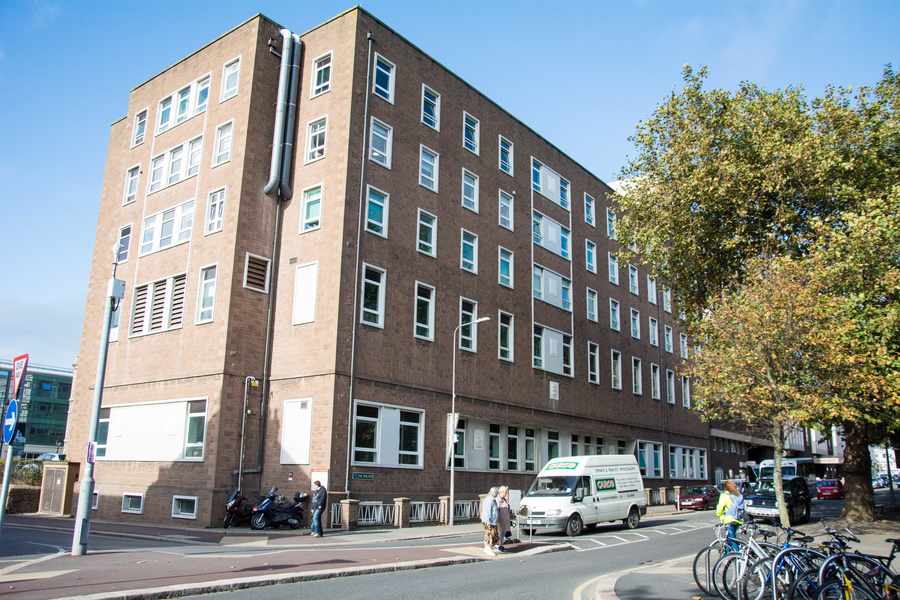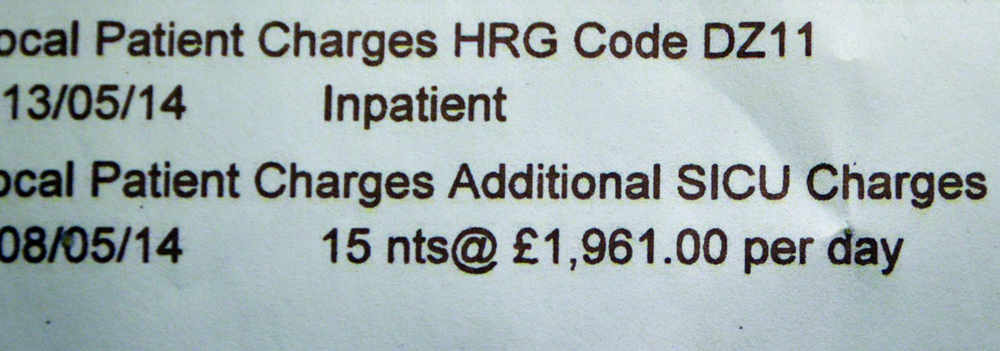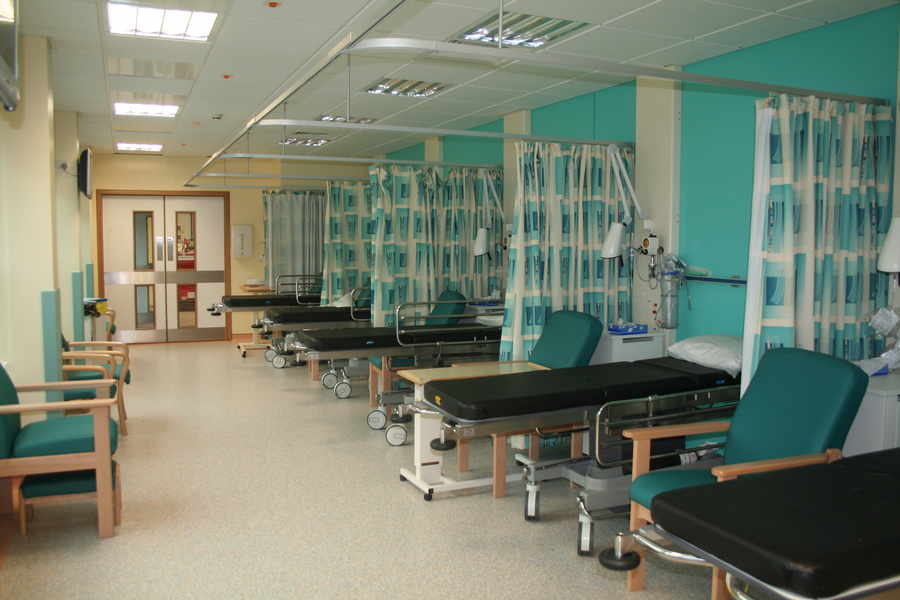Gerry Gaffney, an engineer from Motherwell in Scotland who moved to the Island in 2013, said he was ‘disgusted’ to be presented with the huge bill after receiving life-saving treatment at the General Hospital and spending several weeks in an induced coma in intensive care shortly after arriving in Jersey.
The now 50-year-old, who does not have full residential status, collapsed at his girlfriend’s Le Marais home in April 2014 and an on-call GP who visited him phoned 999. After being taken to hospital, Mr Gaffney was admitted to intensive care and was given time ‘to say goodbye’ to his partner, Lesley Robert, as his condition was so severe.

Mr Gaffney was diagnosed with pneumonia and influenza A, a form of flu, and was put into a medically induced coma. While he was unconscious his heart stopped twice, but he made a gradual recovery after spending about a month in intensive care and more time recuperating on a hospital ward.
Mr Gaffney contacted the JEP after reading a report last week that Citizens Advice had become concerned at a rise in the number of clients facing large hospital bills. The organisation is planning an awareness campaign to make sure that people realise that non-entitled residents who are hospitalised face potentially large bills if they have no insurance cover.
Mr Gaffney said: ‘On the day of my discharge the hospital’s finance department heard about it and a girl came running down and said: “You’ve got some paperwork to sign”. I was still not completely with it. Lesley asked what I had just signed and I said I didn’t know. But it was a bill for £30,000. I wasn’t told what it was, I wasn’t told what I was signing. It was just, “There’s some paperwork for you to sign before you leave the hospital”. It was a total disgrace.’

Mr Gaffney, who now works as a barman, said that there was no way the bill could be paid and that the thought of it caused him great stress. The bill totalled £30,442 and included £1,961 for each night he spent in intensive care.
Following his treatment, the hospital continued to contact him in an attempt to arrange payment, but he has since been supported by Citizens Advice, who requested that no further contact be attempted.
‘People need to know what can happen,’ Mr Gaffney added. ‘It’s disgusting. There needs to be some arrangement. They can’t just treat somebody and then when they leave hand them a £30,000 bill.’
Yesterday a spokesman from the Health Department said: ‘The policy’s primary purpose is to deter people travelling to Jersey with the intent of accessing free healthcare and treatment, and to ensure that free access to services is an appropriate, fair and reasonable use of States funds.
‘The policy is not a money-making scheme and seeks only to recover costs. It has been developed with a view to ensuring that the best interests of Jersey residents and taxpayers are taken into account. Information is readily available on the gov.je website. However, we agree that more should be done to raise awareness and we welcome any initiative that will help to achieve this.’







